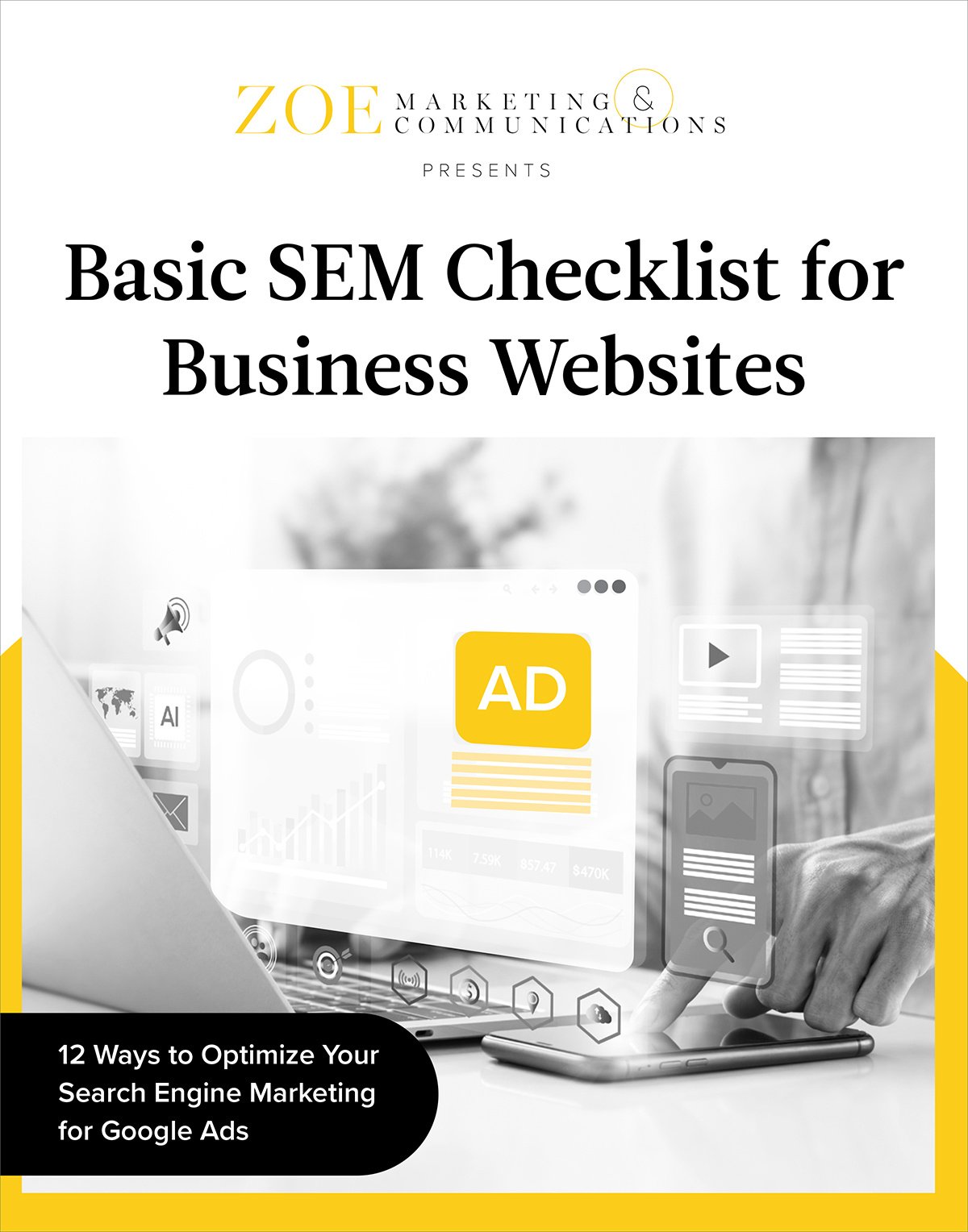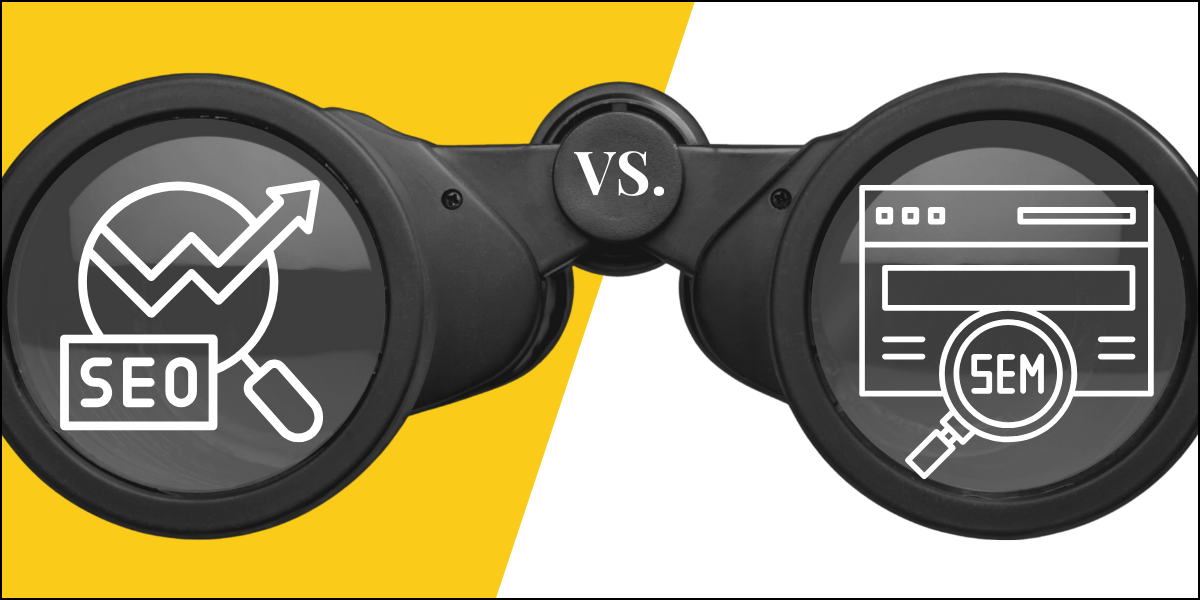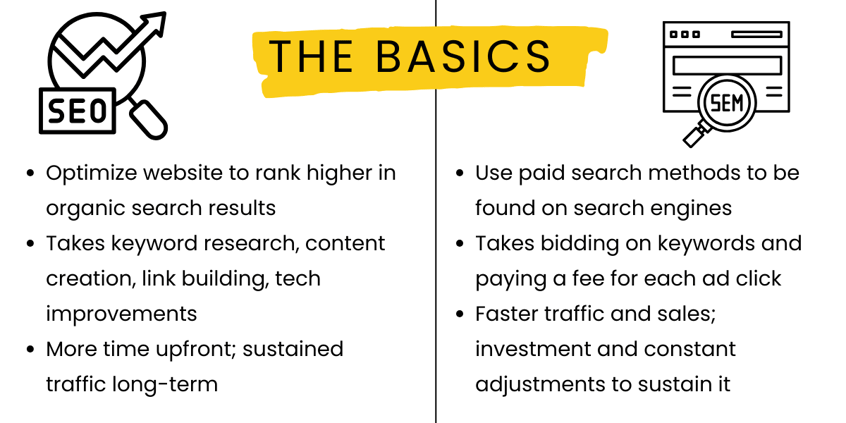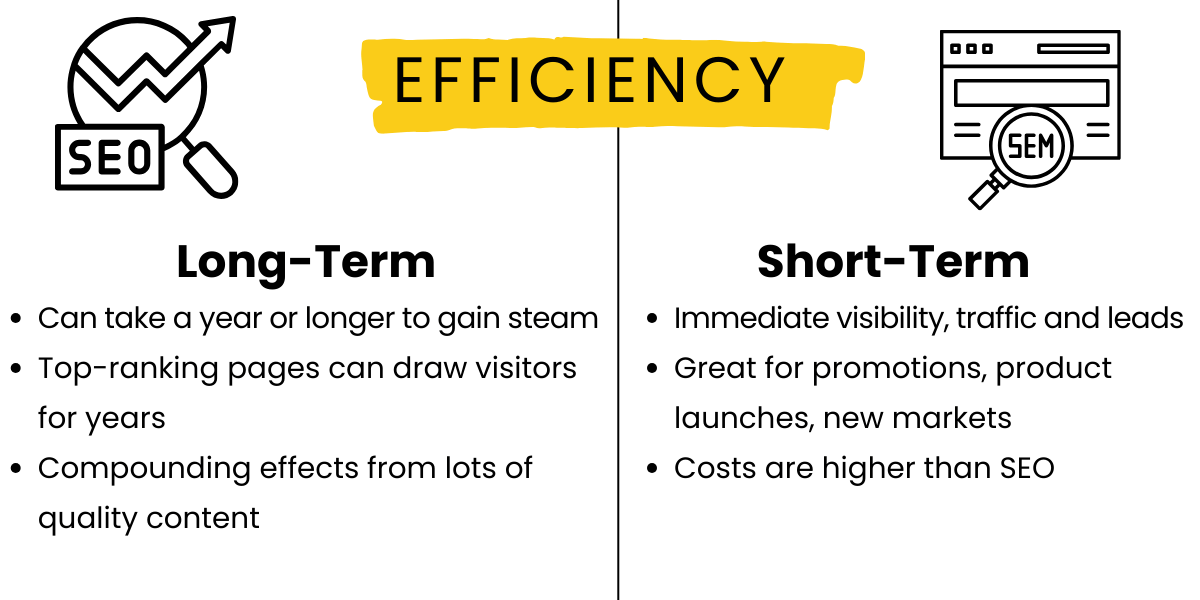
Download Your Basic SEM Guide
Learn how Google Ad Grants can support your nonprofit’s digital strategy, from eligibility to the application process and tips for maximizing yours.
Topics:
February 21st, 2024 | 2 min. read
By Kim Kovelle

In the alphabet soup of digital marketing terms, two are well-known: SEO (search engine optimization) and SEM (search engine marketing). Both aim to increase website visibility, but they differ significantly in approach, cost and the time required to see results.
At Zoe Marketing & Communications, we often get asked which is more budget-friendly. The answer? It depends. Let’s break down four key factors:
By the end, you’ll have a clearer idea of how these strategies fit into your marketing budget — and whether you should prioritize one or use both.
Discover 12 essential steps to optimize your search engine marketing to attract more prospective clients on Google.

SEO focuses on optimizing your website to rank higher in organic search results. It involves three key components:
SEO takes time to build but delivers sustainable traffic growth and long-term cost savings.
SEM is a paid approach — primarily PPC (pay-per-click) ads on Google Ads — that allows businesses to bid on search keywords for immediate visibility. It’s ideal for:
Unlike SEO, SEM generates immediate results, but costs are ongoing.

SEO requires upfront investment in content, technical improvements and link-building.
Costs typically range from $500 to $5,000 per month for small- to mid-sized businesses, with larger companies spending $10,000+.
However, as rankings improve, the need for aggressive spending decreases.
With SEM, you pay for clicks — meaning direct, recurring costs. Monthly budgets vary widely:
SEM offers instant visibility but requires continuous spending to maintain results.

SEO takes months to gain traction but delivers lasting, cost-effective results. Once your site ranks, you’ll get free organic traffic. Content builds authority over time, reducing reliance on paid ads.
SEM delivers more instant leads, making it great for launching campaigns or entering new markets. However, its effectiveness depends on budget allocation and ad performance optimization. Once you stop spending, traffic stops.
Ultimately, the choice between SEO and SEM — or a blend of both — depends on your business goals, timeline and budget. A balanced approach often gets the best results.

A balanced marketing strategy blends SEO and SEM.
Many businesses start with SEM for quick wins while investing in SEO for sustainable growth.
Both strategies have their place in a solid marketing plan. If you need fast results, SEM is the way to go. If you're looking for lasting visibility and cost-efficiency, SEO is worth the investment.
Zoe Marketing & Communications can help tailor a strategy to your needs. Talk to us to explore how SEO and SEM can work for your business.
Want to dig deeper? Check out these guides:

Learn how Google Ad Grants can support your nonprofit’s digital strategy, from eligibility to the application process and tips for maximizing yours.
As Zoe Marketing & Communications’ content manager, Kim Kovelle brings over 20 years of writing and editing experience in metro Detroit. She has strong roots in community journalism and a knack for making complicated topics make more sense.
Topics:
